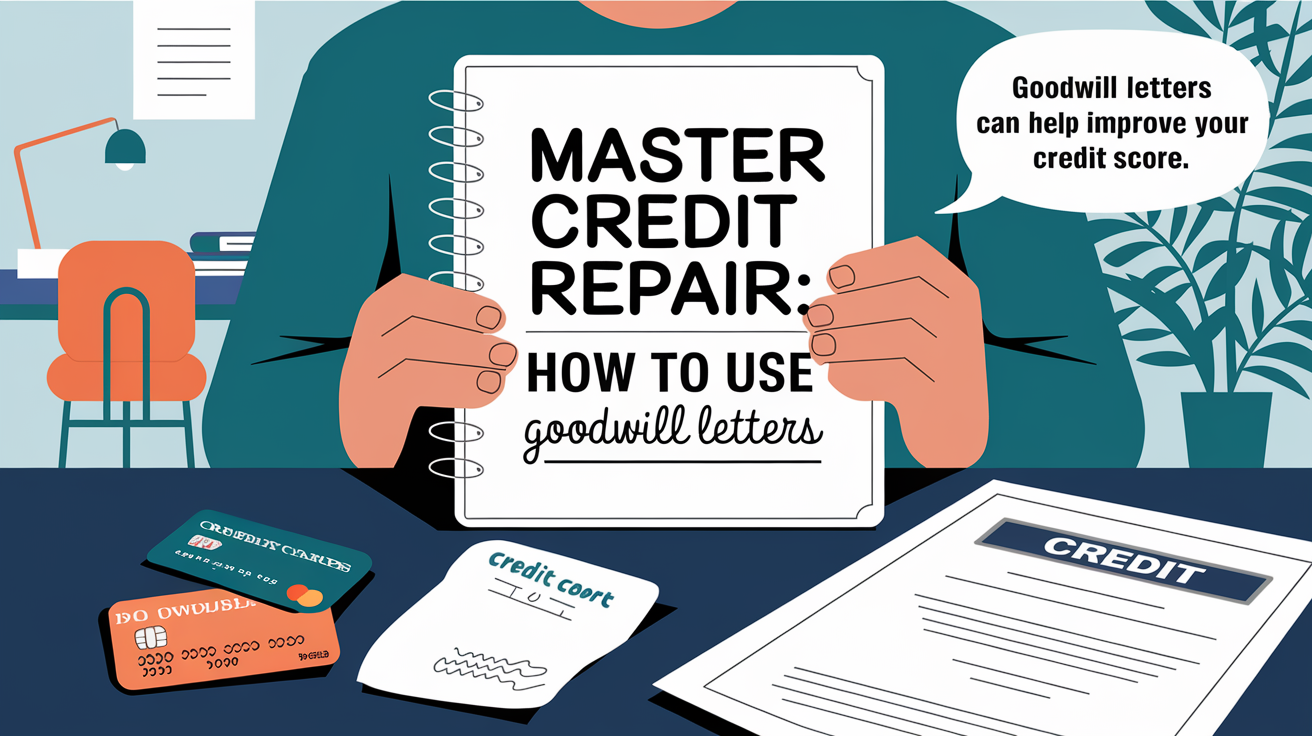Home Repair Loans for Bad Credit: Top Lenders Revealed

Facing sudden home repairs can be tough, especially if you don't have a perfect credit history. It might seem hard to get a home repair loan with bad credit, but it is possible, especially if you don't have enough cash to cover the expenses. This guide will look at different financing options. It will also give tips on how to qualify and how to handle the application process well. Remember, when you know your options and make smart choices, you can have a better home-repair experience.
Understanding Home Repair Loans for Bad Credit
Improving your home often needs some financial help. A personal home improvement loan is a common way to get this support. Yet, if your credit is not good, getting approved for a loan may feel hard. Regular lenders may see you as a risky borrower. This could mean tougher rules or higher interest rates.
But don’t worry! Some lenders focus on loans for bad credit. They know that your credit score is not the only thing that shows if you can manage your money. They look at other things, like your income, how much debt you have compared to your income, and your job history. This gives borrowers better chances to find money for important home repairs or upgrades.
What Are Home Repair Loans?
Home-repair loans help homeowners pay for important repairs or improvements, including home loan options that make these renovations more accessible. You might need to fix a roof, replace old appliances, or make your home more energy-efficient. These loans can help turn your plans into reality, even if money is tight.
You can get these loans from banks, credit unions, and online lenders. The amount you can borrow depends on things like your credit, income, and what the lender asks for. These loans usually come with flexible terms and good interest rates. This means you can pay back the money over time in a way that suits you.
Before you choose a loan, it's smart to look around. Compare rates, fees, and repayment terms from multiple lenders. This way, you can find the best deal that works for you.
Why Bad Credit Affects Your Loan Options
Your credit history shows how well you manage your money. It gives lenders an idea of your ability to handle debt. If your credit history has issues like missed payments or high credit card balances, it can make you seem risky to lenders. This can limit your options for loans and lead to tougher lending rules.
Most lenders have a minimum credit score they look for when approving loans. If your score is too low, they might reject your application. You could also get worse terms, like higher interest rates or smaller loan amounts. These rules help lenders reduce risks when lending to people with bad credit.
Not all lenders use the same rules, though. Some focus on loans for people with bad credit. It’s smart to check various options and compare the terms and rates. This way, you can find the best loan for your financial situation.
Types of Home Repair Loans Available for Bad Credit
Finding ways to finance home repairs with bad credit gives you different choices. One option is a secured personal loan. This type needs something valuable, like your home or car, as collateral. Because of this security, lenders can offer lower interest rates. Another option is an unsecured personal loan. This gives you more flexibility but usually has slightly higher interest rates.
You can also look into government-assisted home repair loans. These can have easier eligibility rules and better terms. The goal of these programs is to support safe and affordable housing. They can help homeowners who are dealing with bad credit.
Secured vs. Unsecured Loans
Secured loans, such as home equity loans, need the borrower to provide collateral. This collateral is a safety net for the lender. If the borrower does not pay back the loan, the lender can take the collateral to recover their losses. Because of this security, secured loans often have lower interest rates and better terms for borrowers. This is because the risk for the lender is lower.
On the other hand, unsecured loans, like most personal loans, do not need any collateral. Lenders look at the borrower's credit score, income, and debt-to-income ratio to decide if they qualify. Since there is no collateral, unsecured loans usually have higher interest rates. This reflects a greater risk for the lender.
When deciding between a secured and an unsecured loan, you need to think about your situation and financial goals. It is important to carefully consider the advantages and disadvantages, especially regarding interest rates, loan amounts, and repayment terms, to make a smart financial choice.
Personal Loans for Home Repair
Personal loans are a flexible way to get money for many purposes, like home repairs. These loans give you a set amount of cash at once. You then pay it back in regular amounts over a set time. While most personal loans need a credit check, some lenders who focus on bad credit may look at other things, such as your income, job history, and how much debt you have compared to your income.
Interest rates for personal loans for home repairs can change depending on your credit score, the loan amount, and how you plan to repay it. If you have bad credit, you may see higher interest rates than people with excellent credit. It's a good idea to look at different lenders and compare rates and fees to find a good loan offer.
Keep in touch with your lender during the loan process. Talk about any worries as soon as they come up. Making your payments on time can help improve your credit and make your financial situation stronger.
Government-Assisted Home Repair Loans
The government understands how important it is to have safe and affordable housing. That’s why there are programs to help homeowners pay for necessary repairs. The Department of Housing and Urban Development (HUD) is key in managing these programs. They work with local agencies and non-profit groups to offer grants, loans, and other financial help. These programs focus on low-income homeowners, senior citizens, and people with disabilities.
There are different choices in government-assisted home repair programs, including home repair program loans. One option is the FHA Title I Home Repair Loan, which gives money for needed improvements. Each program has different rules and details. It’s important to reach out to your local HUD office or a HUD-approved housing counseling agency to see if you qualify and to find out what programs are in your area.
Getting loans for home repairs from the government often has a simple process. It highlights what the repairs are for and how they can help improve living conditions. To assist homeowners, working with a mortgage lender to secure a new mortgage can be beneficial when navigating these programs. These programs are a good option for homeowners who have trouble getting regular financing choices.
Home Equity Loans and Lines of Credit
For homeowners who have a lot of home equity financing in their homes, home equity loans and home equity lines of credit can be good ways to pay for repairs. But, if you have bad credit, getting these options might be tough. Lenders usually want to see a good credit history and a decent amount of equity to feel safe lending you money.
Home equity loans, also known as second mortgages, give you a lump sum of cash. This money is backed by the equity in your home. On the other hand, a home equity line of credit (HELOC) works like credit cards and often comes with variable rates. It gives you a line of credit you can use when you need it. Both options usually have lower interest rates than personal loans because your house is taken as security.
If you are thinking about getting a home equity loan or a HELOC and have bad credit, it helps to look for lenders that focus on your situation. You might also check out government home improvement programs. These can offer better terms and be more understanding of your credit situation.
How to Qualify for Home Repair Loans with Bad Credit
Getting home-repair loans with bad credit needs a smart plan. You also need to know how lenders look at your money habits. Your credit score is important, but it is not the only thing they check. Lenders look at your whole financial situation, not just your credit report.
To improve your chances of approval, it's crucial to show that you handle money well. If you can prove you have a steady income, low debt, and a true plan to pay back the loan, you may get approved even if your credit history isn’t the best.
Assessing Your Credit Score and Financial History
Before you start the loan application process, it's important to check your credit status and financial history. Get your free credit report from the three main credit bureaus: Equifax, Experian, and TransUnion. This report shows your credit history, including open accounts, payment history, and any debts you owe.
Look closely at your credit report for mistakes or errors. This could be the wrong personal information or accounts that are not yours. Fixing these errors might help raise your credit score and make it easier to get your loan approved. Remember, even a small increase in your score can make a big difference in your loan eligibility.
Knowing your credit profile allows you to see where you can improve. If you have missed payments or high credit usage, taking action to fix these problems shows lenders that you are responsible. This can increase your chances of getting a home repair loan.
Improving Your Credit Score Before Applying
Having a good credit score can help you get better loan terms. However, if your credit history isn't great, do not worry. You can take steps to improve your credit score. This can help you get a home repair loan with better conditions.
Start by always making your payments on time. This includes credit cards, bills, and loans. Another way to boost your credit score is to lower your credit utilization ratio. This measures how much of your available credit you use. Keep it below 30% to show lenders you manage credit well.
It's also a good idea to check your credit report regularly. Look for errors or mistakes and fix them quickly. Improving your credit score may take some time and effort. But in the long run, it helps you access better loan options and lower interest rates. So, it's worth it!
Documentation Needed for Loan Application
Gathering all the documents you need before starting the loan application can make the process easier. Lenders usually ask for certain papers to check your identity, income, and job status. Having these documents ready can help speed up the approval process.
Some important documents include proof of identity, like a driver’s license or passport, verification of your Social Security number, and proof of income, such as pay stubs or tax returns. Lenders may also ask for papers related to your home, like mortgage statements or property tax bills, to understand your financial situation.
Getting these documents organized in advance shows that you're ready. It helps the application process go smoothly. It lets lenders quickly check your eligibility, which can reduce delays and help you get a decision on your loan application promptly.
The Application Process for Home Repair Loans
Once you pick the kind of home-repair loan or instalment loan that fits what you need and gather the right documents, you can start the application process. Each lender might have different rules, but knowing the general steps can help you have a good experience.
Usually, you will need to fill out a loan application. You will also provide your financial information and the loan amount you want. Be ready to submit your documents for checking. After that, the lender will look at your credit and decide if you qualify. It's important to read and understand the loan terms, such as interest rates, repayment times, and any extra fees, before you finish your application.
Where to Apply for Home Repair Loans
When you need a home repair loan, many financial institutions can help you. It’s good to look at different options like banks, credit unions, and online lenders. This way, you can find the right loan for your financial needs and goals.
Traditional banks are a common choice. They usually offer competitive interest rates and good personal service. Credit unions focus on their members. They might have more flexible terms, especially for people with imperfect credit. Online lenders are becoming popular because they are easy to use and quick. They offer a simple application process and fast access to money, often catering to certain credit types.
Before you commit to a lender, it’s important to do your research. Compare interest rates, fees, and repayment terms. Reading customer reviews and checking the reputation of lenders can help you know if they provide good service and are reliable. This way, you can have a positive borrowing experience for your home-repair needs.
Step-by-Step Guide to the Application Process
Successfully navigating the application process for a home repair loan involves understanding the steps involved and preparing accordingly. While the process may slightly vary between lenders, the general framework follows a structured approach to ensure clarity and efficiency.
Following these steps diligently and maintaining transparent communication with your lender throughout the process can streamline your application and pave the way for a smooth borrowing experience.
Common Reasons for Loan Denial and How to Avoid Them
Experiencing denial for a loan can be tough, but knowing why it happens can help you fix those issues and do better in the future. Lenders look at different things when they check loan applications. Understanding these factors will help you make a stronger case.
A low credit score is often due to missed payments, defaults, or using too much credit. This can cause lenders to see you as a risk and deny your loan. It's important to keep a good credit score by managing your credit well and making payments on time. Also, having a high debt-to-income (DTI) ratio means a large part of your income goes to paying off debt. This can worry lenders because it shows you might struggle to take on more debt. They usually want borrowers with a healthy DTI ratio.
Before you apply for a loan, get your credit report and check it for mistakes. Improving your credit score is a good idea, too. Creating a real budget, lowering your current debt, and showing a stable income can make your financial profile look better and increase your chances of getting loan approval.
Tips for Choosing the Right Home Repair Loan
Choosing the right home repair loan is important. You need to think carefully about different factors like interest rates, loan terms, and fees. When you understand the details of each loan option and compare offers from different lenders, you can find a loan that fits your budget and your ability to pay it back.
Look at the interest rate closely. Even a small change in the rate can change how much you pay in total for the loan. Check the repayment terms, including the loan term and the monthly payment plan, to make sure they match what you can afford. Also, be mindful of any fees, like origination fees or penalties for paying off the loan early. Knowing these things will help you choose a loan that best meets your needs and situation.
Comparing Interest Rates and Fees
When you look at different home repair loan offers, it's important to know the costs involved, including the cost of a loan. Interest rates are the fees that lenders charge to borrow money. These rates affect your monthly payments and the total loan cost. Even a small change in interest rates can greatly increase your expenses over the loan term.
You also need to be aware of any extra fees that lenders might charge. Origination fees are often paid upfront to process your loan and can be between 1% and 8% of the total loan amount. Prepayment penalties may apply if you pay off your loan early, depending on the lender and the loan terms.
By comparing interest rates and any added fees, you can see how affordable the loan is. It's a good idea to get quotes from several lenders. This way, you can find the best rates and terms for your home repair project without a hard credit pull.
Understanding the Terms and Conditions
Before you sign any loan agreement, it's very important to read and understand the terms and conditions. This document is a legal contract between you and the lender. It lays out the details of your loan and what you need to do.
Pay special attention to the repayment terms. This includes the loan term, which is how long you have to pay back the loan, and the monthly payment schedule. Knowing these details helps you make a good budget and pay on time, which helps you avoid late fees. Also, check for any rules about late payments because they can lead to extra charges and hurt your credit score.
If there is anything that you do not understand, ask your lender for help. Understanding your responsibilities will help you manage your loan well and avoid problems.
Avoiding Predatory Lenders
When you are looking for loan options, be careful about predatory lenders. These lenders often aim at people with bad credit and take advantage of their tough situation. Understanding how these lenders work is very important to keep yourself safe.
Predatory lenders use strong sales tactics. They may pressure you into taking loans with bad terms. They often charge high interest rates, extra fees, or penalties for paying off loans early. Their goal is to keep you stuck in debt. These lenders may also focus on borrowers with poor credit, offering quick approval but without proper credit checks.
To protect yourself, do some research and choose honest lenders. Look for those with a good history of fair lending. Compare loan offers from different lenders. Read all terms and conditions carefully. Asking for help from trusted financial advisors can also help you avoid problems with predatory lending practices.
Managing Your Loan Repayments Effectively
Managing your loan repayments the right way shows that you are responsible for your money. It helps you rebuild your creditworthiness. Making a smart budget that includes your monthly payments is important. It keeps you on track with repayments so you avoid late fees or harm to your credit score.
Staying in touch with your lender creates a better borrowing experience. If you see trouble ahead with making payments, tell your lender right away. They might offer options, like changing your loan terms or temporary relief programs. Taking control of your finances helps you steer clear of missing payments. This way, you keep your financial health and build a solid credit history.
Strategies for Timely Loan Repayment
The timely repayment of loans is good for your credit history. It also gives you peace of mind, knowing that you are meeting your financial goals. To manage repayments well, you should use effective strategies.
First, create a clear budget that shows your income and expenses. This helps you set aside money for loan payments. You might also want to set up automatic payments through your bank account. This way, your payments will be made on time without you needing to remember each time.
If you can, think about making bi-weekly payments. This could lower the interest you pay over time and help you pay off your loan more quickly.
Keep in touch with your lender. This can help both you and them. If something happens that makes it hard for you to pay on time, contact your lender right away. They might offer solutions, like modifying your loan or giving you help for a short time.
What to Do if You Face Repayment Difficulties
Facing unexpected money problems is something many people go through. It’s important to handle any repayment issues early and talk to your lender honestly. If you ignore the problem, it can lead to missed payments and late land fees and hurt your credit score, making things worse for you.
Most lenders want to help borrowers who are truly struggling. They can look at options that can make things easier for you. If you contact your lender sooner rather than later, they can understand your position and find solutions, like a short pause on payments, changing the loan agreement, or creating a new payment plan that fits your finances better.
Always remember that being open with your lender is key throughout this time. Trying to hide your issues can make it harder to find help and can damage your relationship with them. By dealing with these problems head-on, you show that you want to fix things and keep your finances healthy.
Conclusion
In conclusion, bad credit home improvement loans can help people with bad credit who need money for home improvements. It’s important to know the different loan options, work on your credit score, and manage repayments well. You should compare interest rates, steer clear of lenders who take advantage of you, and look for programs that the government offers. This will help you make smart choices to find the best option loan for your needs. Also, check your financial situation, collect any papers you need, and do the application steps carefully to improve your chances of getting approved. With some hard work and effort, you can get the funds you need to improve your home, even if you have faced credit problems in the past.



